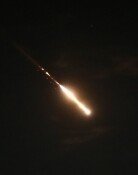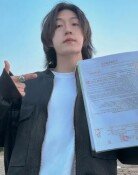Lee In-ho under attack by KBS unionists, opposition party
Lee In-ho under attack by KBS unionists, opposition party
Posted September. 03, 2014 07:29,
Lee In-ho, emeritus professor of Seoul National University, who has been recommended as candidate for board chairperson at Korea Broadcasting System (KBS), is under attack by KBS unionists and members of opposition parties. They attack her by citing controversy over her grandfathers alleged pro-Japanese acts and her allegedly biased view of history leaning toward rightist ideology. Her advanced age of 78 is another cause of criticism. The reasoning of those people who criticize her apparently lies in the fact that Lee sympathized with a church lecture by Moon Chang-geuk, who was nominated as prime minister only to withdraw his candidacy, by saying The speech is touching.
Lee, a graduate of Seoul National University college of humanities, received a doctorate degree in literature by majoring in history at Harvard University in the U.S. The Kim Young-sam administration named her Koreas first female ambassador as the head of mission to Finland, while the Kim Dae-jung government appointed her as Korean ambassador to Russia. She served as chairperson of the Korea Foundation during the Roh Moo-hyun administration after taking key posts during the Kim Dae-jung government. Since she served as director of KBS board of directors for four years from 1988, she is not a total stranger to broadcasting. The reasoning of those who accuse her of having ideological bias is ruthless, as they even cite her ancestor to force out Lee, who has been raising reasonable voice by overcoming the divide between progressives and conservatives.
Lawmakers of the main opposition New Politics Alliance for Democracy have branded her grandfather Lee Myeong-se (1893∼1972) as a pro-Japanese figure. The left-leaning Institute for Research in Collaborationist Activities enlisted Lee Myeong-ses name in the list of founders of the organization for Joseons engagement in war, which urged Koreans to participate in the Pacific War, in the dictionary of pro-Japanese people. Lee In-ho made excuse by saying My grandfather made inevitable choice in order to increase the influence of Confucianism. The compilation of the dictionary itself was controversial, but it is lamentable that the opposition party is blasting Lee by resorting to the guilt-by-association system, which even the Constitution bans. We wonder what the late former Kim Dae-jung, who sent her to Russia as Korean ambassador, would say if he witnesses the current situation.
Lee Beom-se (1874-1940), Lees grandfather in mothers side, denied compromising with Japanese imperialists at age 37, and went into hiding in Yangpyeong, Gyeonggi Province, to keep his loyalty to Korea. Lee Jung-ha (1846∼1917), her grand grandfather in mothers side, was the figure who undauntedly guarded Korean territory at talks with the Qing Dynasty over Jiandao in 1885 and 1897. KBS labor union is raising issue with Lees view of history, calling her a second Moon Chang-geuk. KBS employees who distortedly edited and aired Moons church lecture as they pleased are apparently afraid of Lee assuming its chairperson post.







